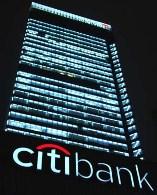 After being on the defensive for the last two years, global bankers are making their presence felt in Davos.
After being on the defensive for the last two years, global bankers are making their presence felt in Davos. The tone was set this morning by JPMorgan Chase & Co Chief Executive James Dimon who called unfair the move to lump banks when parceling out blame for the financial crisis.
"The constant refrain of bankers, bankers is unfair," he said. Not all banks needed the Troubled Asset Relief Programme (TARP) and not all banks would have failed in any case, Dimon said. The US Treasury had given the nine largest US banks TARP funds.
"It is blatantly unfair to say all banks would have failed had governments not provided massive bailouts and backstops," Dimon said in a panel discussion on the ability of the financial system to withstand future shocks.
Some banks like his in fact acted to stabilise the financial system through actions such as J P Morgan's purchase of Bear Stearns.
"I am a little optimistic. I think that we have a stronger system than three years ago," Dimon said.
Dimon's comments came within hours of the comment made by Gary Cohn, president and COO of the Goldman Sachs Group. Cohn warned that the push for tougher bank regulation could shift activity towards more hedge funds and other lightly regulated entities. This would move risk to a more opaque portion of the financial sector.
Peter Sands, chief executive of Standard Chartered, warned that much of the new regulation could "stifle growth" and was contradicting governments' fiscal and monetary policies that are attempting to support countries coming out of the recession. He said new regulation was important but there was a major risk of over-engineering the solution.
But Dimon warned that any "socializing" of states' debts, by involving other European Union countries in financing these, could send out the wrong message on the need for fiscal discipline. "You have got to make sure that some are not piggy-backing on others," he said.
There is a reason why bankers have come to Davos with a renewed sense of confidence. JPMorgan's profits last year were the highest in the bank's history, and Citigroup returned money to the US Treasury and reported its first full-year profit since 2007.
JPMorgan has already upgraded its cocktail reception to the Kirchner Museum from last year's event at the Tonic Piano Bar at Hotel Europe Davos. Bank of America brass will meet clients at the upmarket Steigenberger Grandhotel Belvedere and Morgan Stanley is hosting a private dinner at restaurant Gasthaus in den Islen.
That's a huge difference from the muted appearances last year. There are a whole host of other bankers who have come in this year. Citigroup CEO Vikram S Pandit is speaking about expanding financial services to the poor and Barclays Chairman Robert E Diamond Jr. will discuss the global economy in a session with World Bank President Robert B Zoellick.
Most bankers attending the summit this year said the financial system is now more stable and it's time they started speaking about new regulations threatening to overwhelm institutions with red tape, which could raise the cost of banking services.
For example, the bankers argued the Basel-III rules may encourage banks to load up on sovereign bonds, though recent experience has shown government debt is more risky than it used to be. Ultimately, the overall economy will suffer, they said.
Not everyone is impressed. Dominic Barton, worldwide managing director of consulting giant McKinsey, expressed concern over the potential for new asset-price bubbles. Barton warned that public anger over the financial crisis and recession has put the onus on governments and businesses to rebuild trust, "to deal with crises that will come again."











 © 2025
© 2025